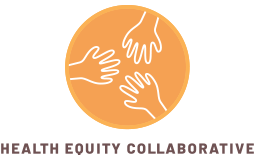18 May To End the HIV Epidemic, Encourage Vaccine Innovation
By Scott Bertani, Health HIV
 World AIDS Vaccine Day, also known as HIV Vaccine Awareness Day, is an annual opportunity to raise awareness about the need to support and invest in vaccine innovations to prevent HIV infection.
World AIDS Vaccine Day, also known as HIV Vaccine Awareness Day, is an annual opportunity to raise awareness about the need to support and invest in vaccine innovations to prevent HIV infection.
Vaccination is a powerful and cost-effective public health tool to eliminate and manage diseases for people of all ages around the world. Today, vaccines help prevent and control over 30 infectious diseases and hundreds of vaccine candidates are currently in development, many of which aim to tackle diseases for which there are no current vaccines. These include efforts to create much-needed cures for diseases such as HIV.
For a vast majority of the 1.2 million Americans currently living with HIV, it is a lifelong condition. No one naturally recovers from HIV infection. While today’s HIV prevention and treatment tools are helping save many lives, only five people have ever been fully cured—each with their own unique scientific journey to that end.
This is because HIV is not like other diseases. Unlike chickenpox or measles, where a vaccine can be used to help a patient recover from the disease, HIV integrates its DNA (nearly) irrevocably into the human genome upon infection. The disease is well known for quickly mutating and camouflaging itself to avoid the body’s immune defenses.
To overcome these obstacles, researchers have developed vaccine candidates targeting the body’s B cells that produce broadly neutralizing antibodies (bnABs) to prevent the virus from infecting healthy tissues. These antibodies can either be given to a patient directly or treatments are pursued that can encourage the body itself to make these antibodies. This strategy has helped neutralize a wide variety of HIV strains and is currently the most promising for an HIV vaccine. One such candidate recently completed a first-in-human trial based on lessons learned from mRNA technologies used to combat the COVID-19 virus.
The rapid development of COVID-19 vaccines applied knowledge from decades of research on HIV/AIDS. The lessons learned from the COVID-19 pandemic can in turn be used to inform ongoing efforts to prevent HIV infection. Policymakers, in particular, can draw many insights including:
-
-
- the value of public-private partnerships,
- the importance of investment in research and development and intellectual property protection,
- and the need to promote an equitable pandemic response effort that ensures the needs of all communities are properly addressed.
-
Leveraging these insights to accelerate new approaches to the development of a safe and effective HIV vaccine is crucial. To find a durable solution, community involvement, and support are also critically important. HIV disproportionately impacts historically marginalized populations and pervasive stigmas can harm an affected person’s mental health and adherence to medication.
Today is a reminder that we are still working towards a cure for HIV. But thanks to the progress that has been made, we are closer than ever to ending this epidemic.


